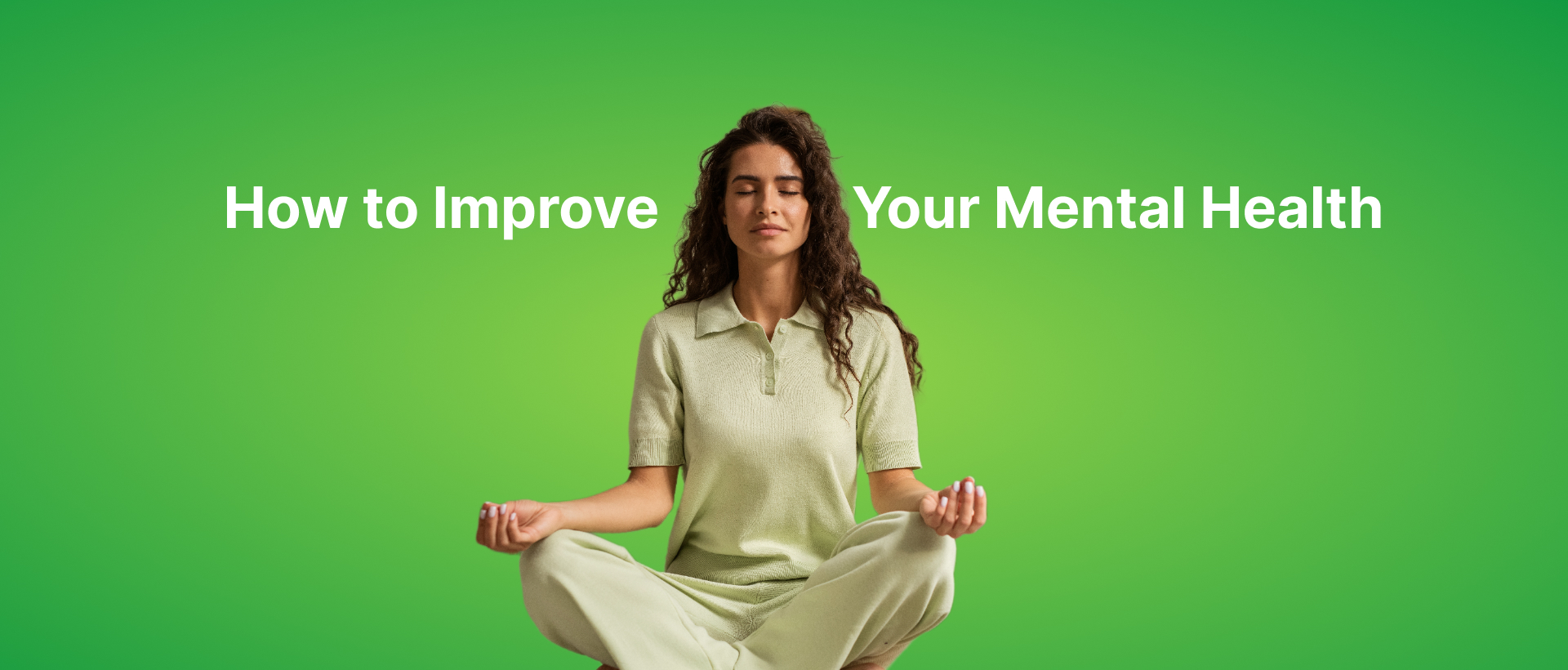
Sometimes, we do not even notice it happening. The stress builds up. Sleep becomes restless. Small things start to feel overwhelming. We stop enjoying the things we once loved. And before we know it, we are feeling stuck, tired, and confused. Mental health struggles can creep up quietly, especially when life feels busy and uncertain.
If that sounds familiar, you are not alone. Many of us feel this way, but the good news is that small changes can help. Mental Health First Aid (MHFA) teaches us that taking early action can make a big difference. Just like physical first aid, mental health care also begins with noticing the signs and taking steps to support ourselves or others.
This blog shares simple and practical ways to improve your mental health. These are not quick fixes, but everyday habits that can bring lasting change.
Start With Awareness
The first step in improving mental health is to notice how you are feeling. Often, we ignore our emotions until they become too big to manage. Instead, take a moment each day to pause and check in with yourself. Ask questions like, “Am I feeling stressed today?” or “What is bothering me right now?”
This self-awareness helps you understand what is going on inside. It also helps you respond with care rather than pushing through or pretending everything is fine.
Prioritize Sleep
Sleep is one of the most powerful tools for mental health. When we are sleep-deprived, it is harder to think clearly, handle stress, or manage emotions. Lack of sleep can lead to mood swings, anxiety, and even depression.
Try to create a calming bedtime routine. Go to bed and wake up at the same time every day, even on weekends. Avoid screens at least 30 minutes before sleeping. You can try reading a book, listening to soft music, or doing gentle breathing exercises before bed.
Good sleep is not a luxury. It is a basic need, just like food and water.
Move Your Body
You do not have to be a fitness expert to benefit from movement. Simple activities like walking, stretching, or dancing at home can improve your mood. Exercise helps release endorphins, which are natural chemicals in the brain that make you feel good.
Try to move for at least 20 to 30 minutes a day. You can go for a walk in the park, join a yoga class, or simply follow a dance video online. The goal is not to lose weight or get fit, but to help your body and mind feel more balanced.
Stay Connected
Social connections is important for mental well-being. Talking to someone you trust can help you feel supported and understood. Whether it is a friend, family member, or colleague, sharing your thoughts with someone can make a big difference.
If you notice someone else feeling low, reach out to them. A simple message or call asking, “How are you really doing?” can open the door to a helpful conversation. MHFA encourages us to support others without judgment and to listen with empathy.
We are not meant to go through hard times alone. Connection brings comfort, even when words are few.
Limit Screen Time and Social Media
Technology has many benefits, but too much screen time can affect your mental health. Social media, in particular, can lead to comparison, self-doubt, and negative thinking. It is easy to believe that everyone else is doing better than you, but most people only share their highlights online.
Take regular breaks from screens. Set time limits for social media apps or schedule “offline hours” during the day. Instead of scrolling, try reading, cooking, or doing a hobby you enjoy.
Protecting your mental space is just as important as protecting your physical space.
Do Things You Enjoy
Engaging in activities that bring you joy can reduce stress and improve your overall well-being. This could be painting, playing music, writing, cooking, gardening, or even taking care of a pet. These activities allow you to express yourself and feel a sense of purpose.
If you are not sure what you enjoy anymore, think about what made you happy as a child. Sometimes, returning to those simple joys can help you reconnect with yourself.
Doing things you love is not a waste of time. It is a way of caring for your inner world.
Learn About Mental Health
Understanding mental health helps you manage your own well-being and support others. Learn about common conditions like stress, anxiety, and depression. MHFA training provides helpful tools to recognize early signs of mental distress and take safe, supportive action.
When more people are educated about mental health, stigma goes down and help-seeking goes up. Talking openly about emotional well-being helps build a culture of care.
Learning is the first step toward healing.
Ask for Help When You Need It
There is no shame in needing help. Just like we visit a doctor for physical illness, we can seek support for mental health struggles. Talking to a trained therapist or counsellor can provide guidance, support, and coping tools.
If you are not ready to talk to a professional, start with someone you trust. Let them know how you are feeling and ask for support. MHFA reminds us that it is okay to not be okay, and that asking for help is a brave and healthy choice.
Final Thoughts
Improving your mental health does not require big changes. It begins with small steps like getting enough sleep, talking to someone, moving your body, or taking breaks from your screen. These simple habits can have a powerful effect on how you feel over time.
Mental Health First Aid teaches us that with awareness, kindness, and support, we can make mental well-being a part of everyday life. Take care of your mind the way you care for your body. It is one of the best gifts you can give yourself.
You are not alone. Help is always available, and healing is always possible.


